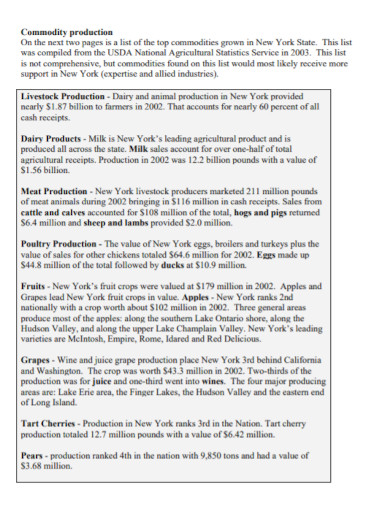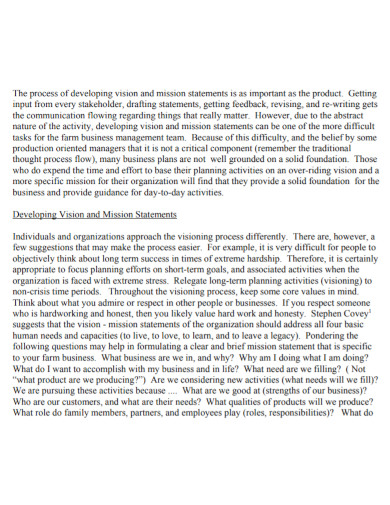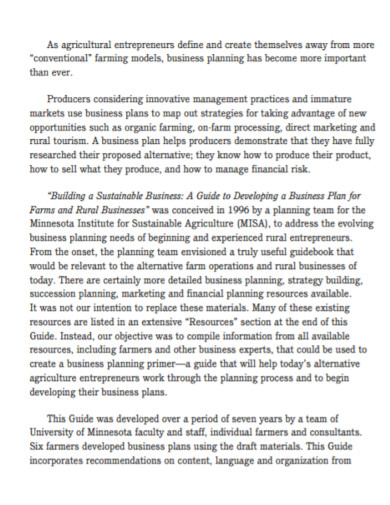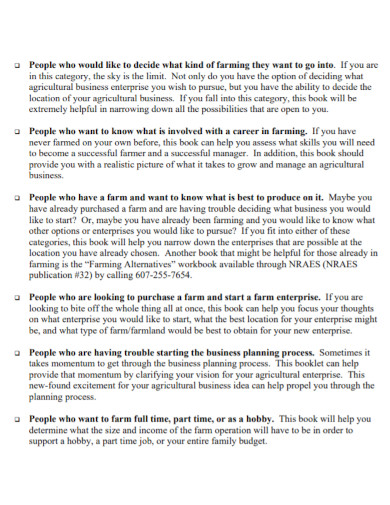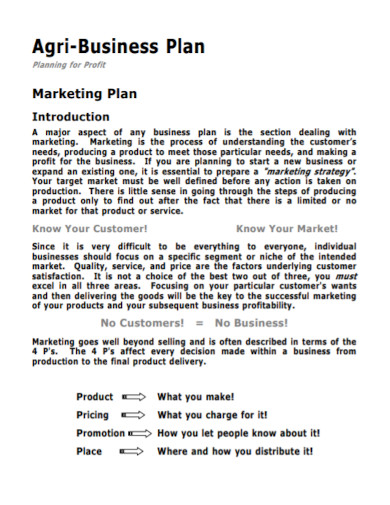5+ Farm Agriculture Business Plan Examples to Download
There is a famous quote that I wish to share to you by a man whose name is Mr. Seth Godin. He once said “There is no shortage of remarkable ideas, what is missing is the will to execute them.” This is true in every business sense since there are a lot of amazing ideas people can think about. The only problem is the will to push through with the idea. This is where business plans come into the picture. Business plans help make the idea a reality. This article will be showing you some examples of farm and agricultural business plan idea examples in PDF.
5+ Farm & Agriculture Business Plan Examples
1. Agriculture Farms Business Plan
2. Organic Farm & Agriculture Business Plan
3. Farm Business Plan Template
4. Sustainable Agriculture Farm Business Plan
5. Basic Farm & Agriculture Business Plan
6. Agriculture Business Plan
Define Agriculture
Agriculture in layman’s terms is the practice of farming, cultivating, growing assorted crops and rearing livestock. It is also the art of preparing animal and vegetable products for human consumption. The art of providing the world’s consumptions. Whether it may be milk, wool, fertilizer, vegetables, fruits or livestock.
Define Agriculture Business Plan
An agricultural business plan and a farm business plan are road maps for a successful business. This plan describes the steps taken to make the business a success. It also shows the main functions of the business, the budget for the entire business, and the goals set by the people involved.
Define Business Plan
A business plan is a well thought out and written plan that describes in complete detail how a business should operate. In a business plan, you will see the vision mission of a business, the objectives, the steps to achieving the desired goal and the budget to be used. In addition to that, a business plan is also called a layout, a well written road map for a business to function properly.
Importance of a Business Plan
In any type of business small or large, business plans play a very important role. A well written business plan not only helps the business move forward, but it also helps the individuals involved. The focus of a business plan is to list the steps taken, the budget, the ideas and the short term and long term goals.
Tips for making a successful business plan
Here are some tips to make a successful business plan for your small or large business. To start off:
- State your Vision, Mission and Objectives – Like any type of business write your vision statement and mission statement. Add your objectives. Avoid writing impossible objectives that may fall short of your practical goals. Impossible objectives only make you lose sight of your interest.
- Plan both short and long term goals – Plan on your short term goals and do them. Your long term goals are for the future of your business. Short term goals are also as important as long term goals. The reason is for you to be motivated enough to continue on working on your business to make it better.
- Make a budget list – Make a list of the things you spent on your business. Whether it was something as small as a dollar to a huge amount of money. This way it is easier for you to track down where and how you spend money.
- Lease some of your land – To make your business grow, you may lease some of your land to people who are also interested in the farming business. This is also one way of boosting your business.
- Make a checklist – Making checklists to see how far you have gone through in your business. That way you can focus on your other objectives.
FAQs
How do I make my business plan even better?
I recommend you check out Farm SWOT Analysis for more examples on making your business plan fool proof.
Why should I avoid making objectives that are close to impossible?
The reason for that is because it is not practical. It will make you lose interest in making your business a success. Focus on the objectives that are attainable.
Must I follow every step I wrote in my business plan?
Not necessarily. As this is your business plan, you may or may not follow the steps you made. Since there are cases where what you wrote may not be as applicable to the situation.
Writing a business plan helps make your business flourish. You don’t need to follow the steps you made to a T especially when there are cases that make it difficult to do so. Take some risks and see what fits the situation and write them down in your business plan.



